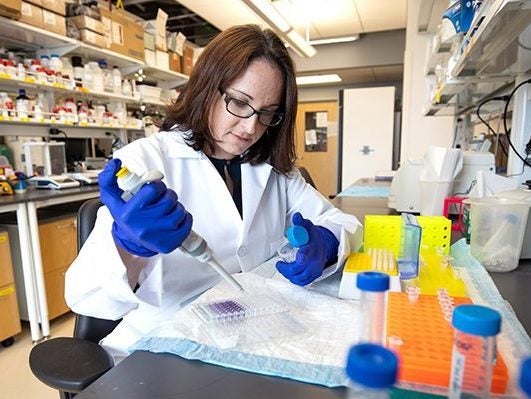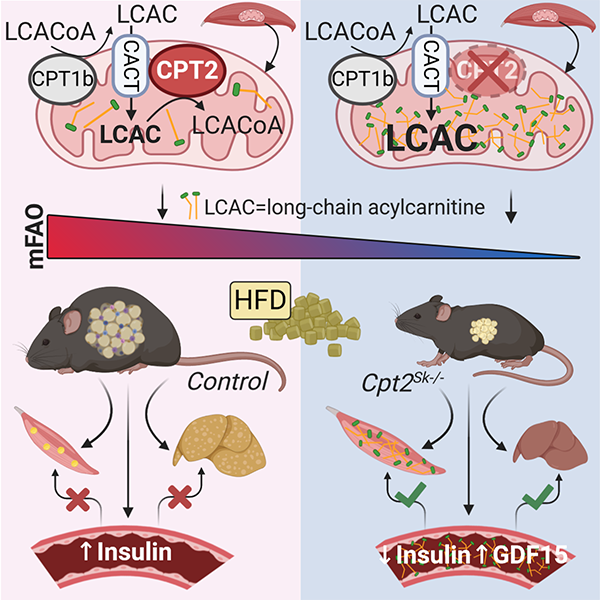Researchers investigate causes of insulin resistance
A research team at East Carolina University’s Brody School of Medicine has published a study that may help exonerate a popular scapegoat in the field of metabolic disease.
The study, produced by a team led by Dr. Andrea Pereyra, post-doctoral scholar, and Dr. Jessica Ellis, assistant professor in the Department of Physiology and researcher at the East Carolina Diabetes and Obesity Research Institute, was recently published in the Cell Reports journal.
Ellis’ lab received a five-year grant from the National Institutes of Health’s National Institute of Diabetes and Digestive and Kidney Diseases to support its research project on lipid metabolism in skeletal muscle, and this is the first of what the team hopes will be several related publications.
Their work centers on acylcarnitines, a type of metabolite that has been suspected of playing a role in the harmful effects of obesity and diabetes. Acylcarnitines accumulate in tissues and blood — especially skeletal muscle — during acute metabolic stress and chronic metabolic disease.
“There’s quite a history of these metabolites … being accused of eliciting some of the potentially negative pathology that is associated with diabetes and obesity,” Ellis said. “But the question has remained: What are they doing, if anything, to the biology of the muscle?”
Ellis said acylcarnitines have increased in popularity since they can be measured in plasma samples by relatively simple mass spectrometry-based methods. “So there are more and more papers that are including the measurement of these metabolites in an attempt to correlate them with their other data” she said.
The team began by testing the hypothesis that accumulation of acylcarnitines was a cause of insulin resistance.

Dr. Andrea Pereyra (Contributed photo)

Researchers in Dr. Jessica Ellis’ lab have published a study investigating the role of acylcarnitines in insulin resistance. (Photo by Rhett Butler)
“The long and the short is that we had a massive accumulation of these acylcarnitines, but we did not see that they were causing insulin resistance, not directly by themselves,” she said.

The study was recently published in the Cell Reports journal. (Contributed image)
The work could have implications for individuals who are obese or diabetic in terms of whether they need to take carnitine supplements — which Ellis said do improve insulin sensitivity, which is a good thing.
“So it seems like there’s some bigger biology that we aren’t quite capturing. However, our data suggests that carnitine supplementation remains a positive intervention for an individual who has metabolic dysfunction/imbalance,” Pereyra said.
“But we don’t know that it necessarily has directly to do with the acylcarnitines, contrary to the school of thought,” Ellis said.
The team still has work to do surrounding the question of insulin resistance but is also moving on to the role of acylcarnitines in mitochondrial metabolism.
“We’re excited about where this research is going but also feel good that we’ve kind of debunked a common misconception in the field that has been propagated but was lacking conclusive evidence,” said Pereyra.
Arvind Rajan in the ECU Department of Chemistry and Christina R. Ferreira at Perdue University contributed to the study.
Related:
ECU postdoc named to national position